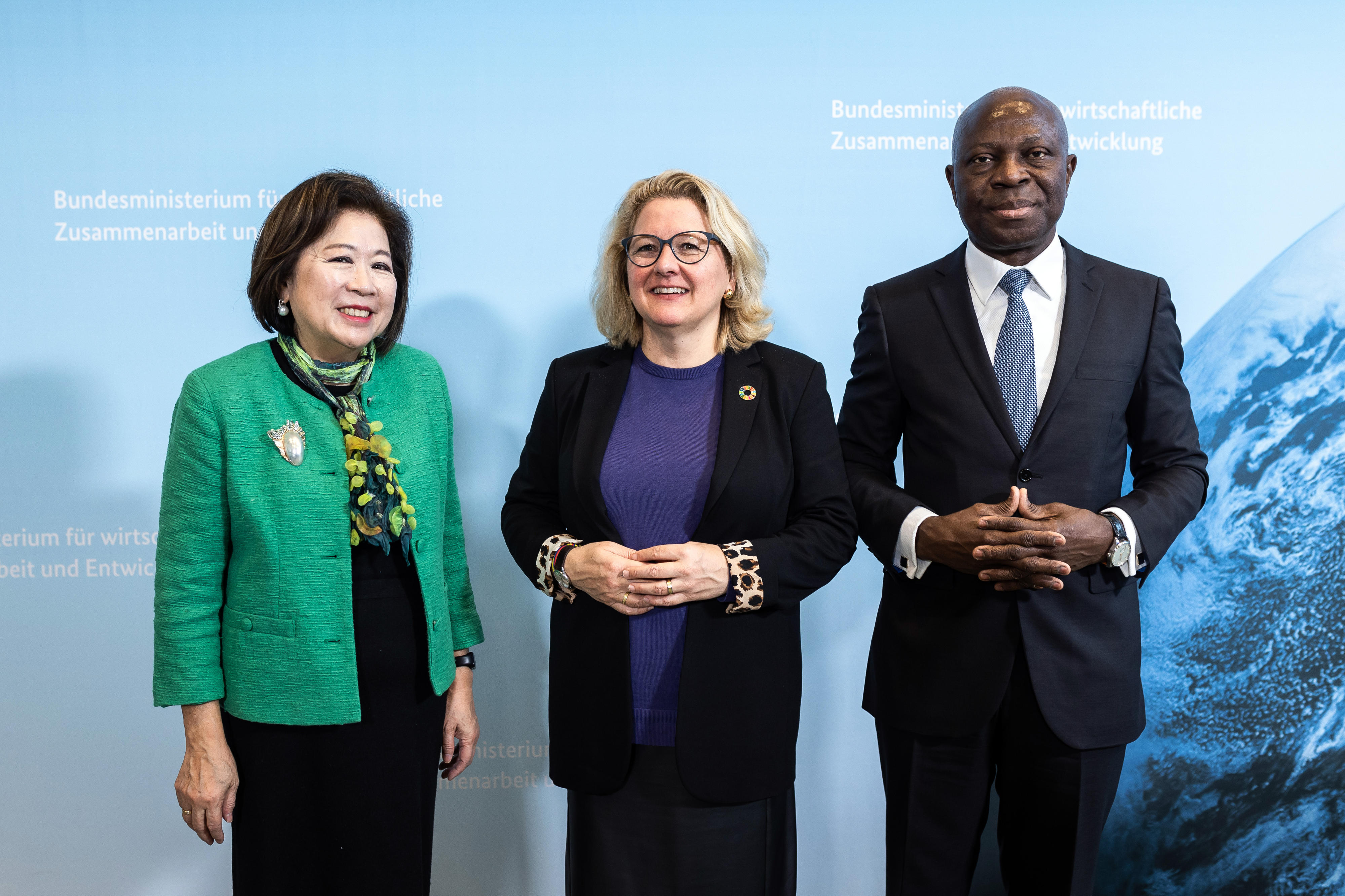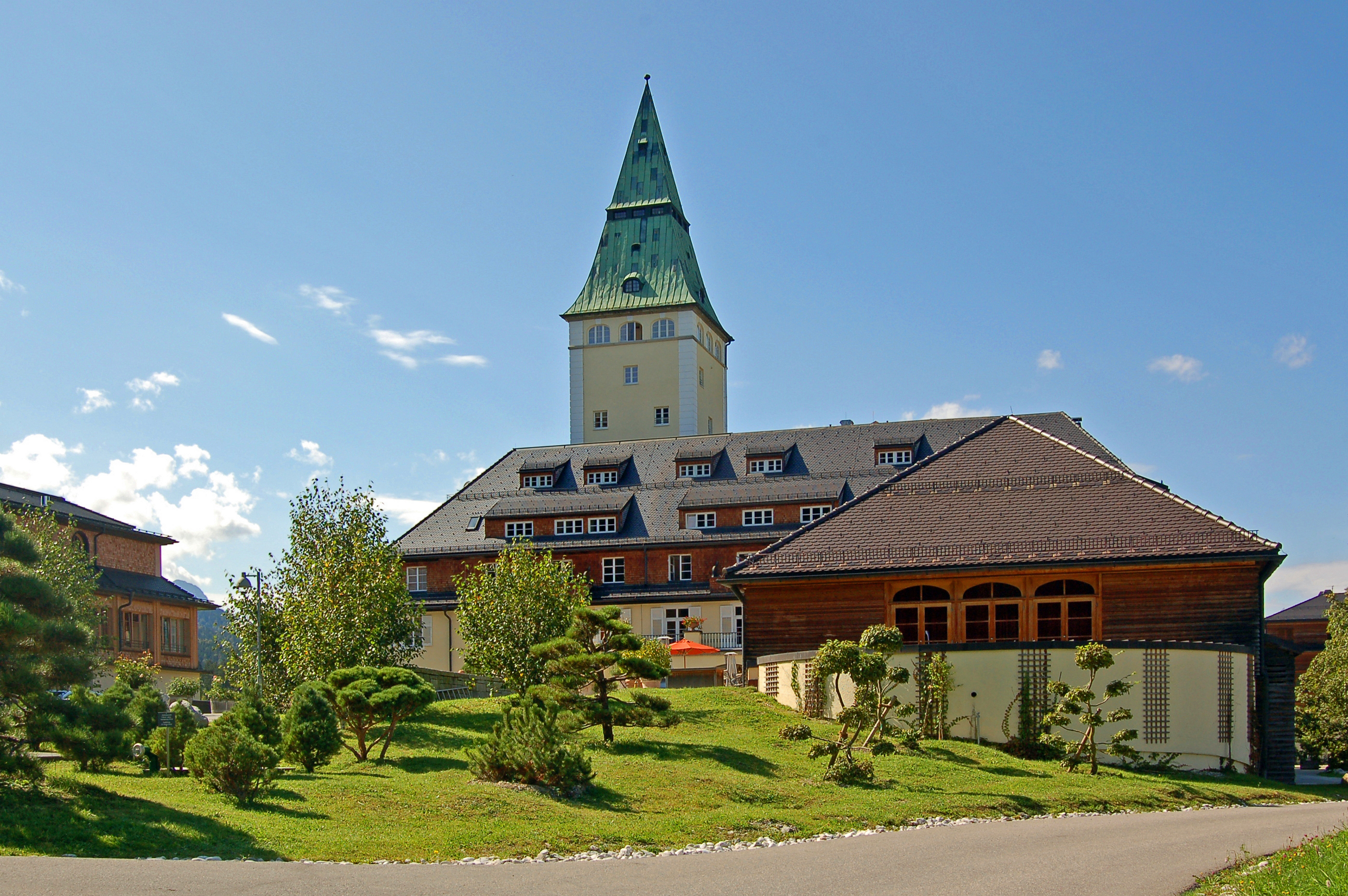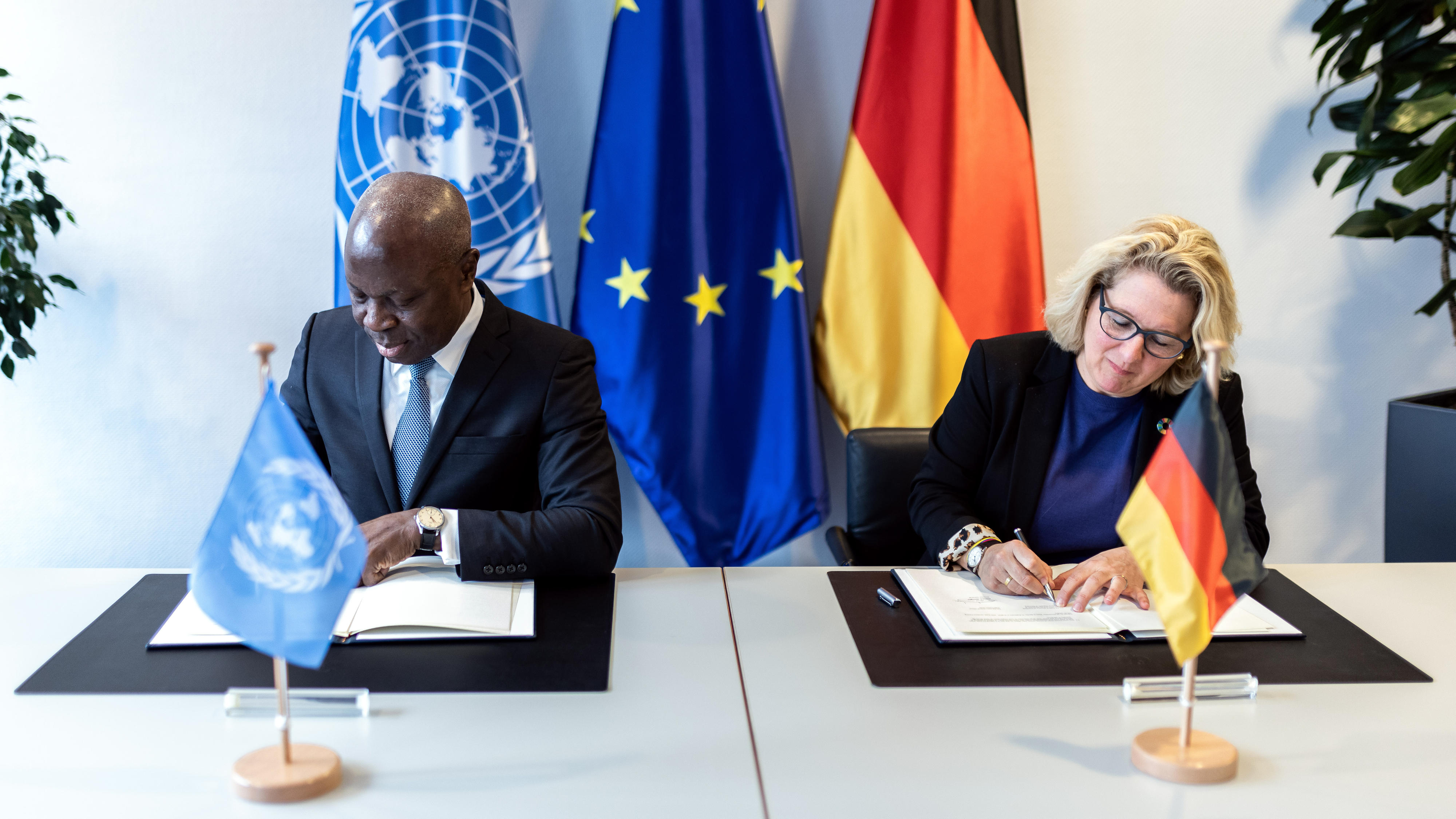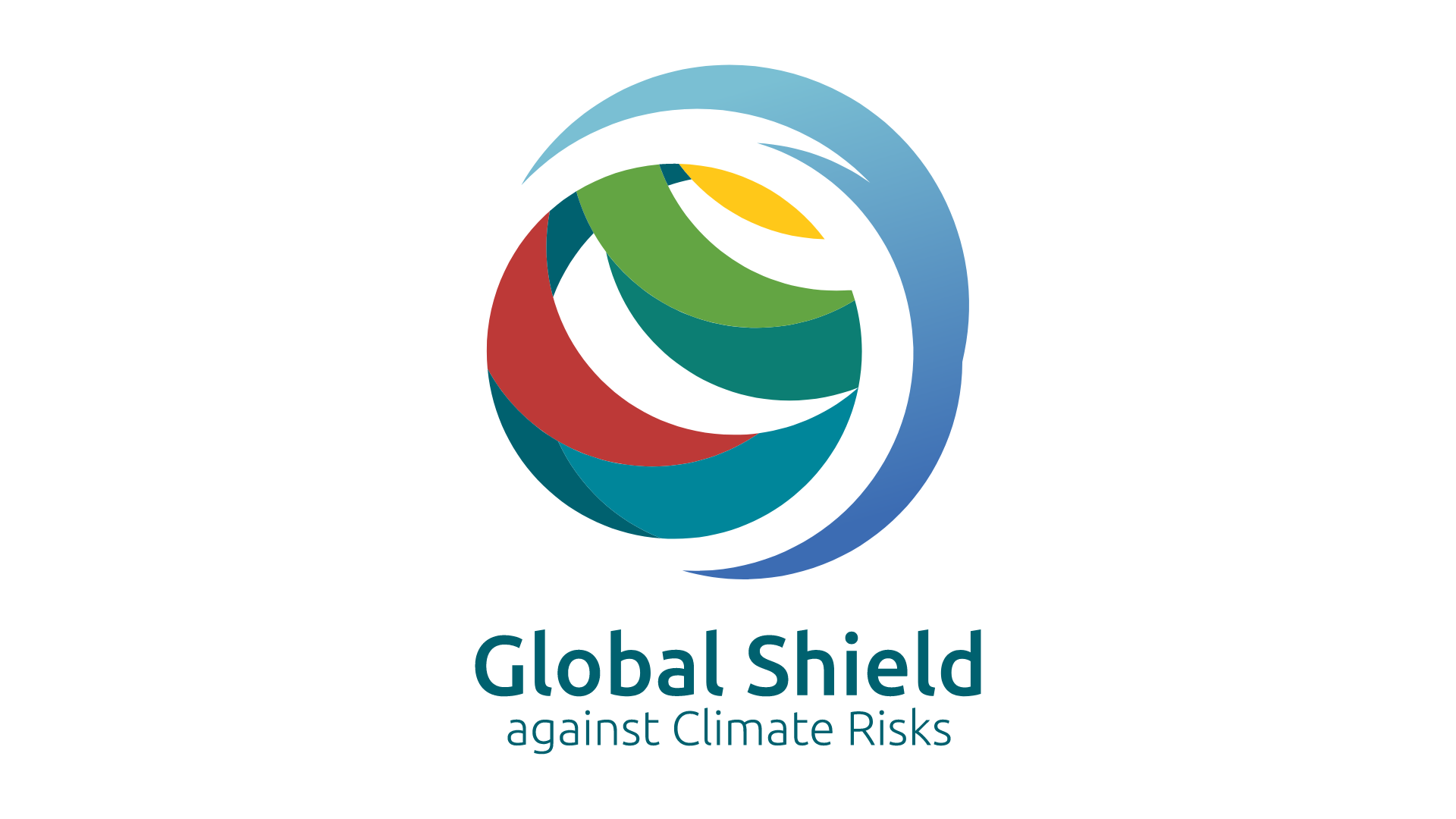Social protection Germany, World Bank and ILO agree to increase cooperation on social protection and decent work
Mari Pangestu, Managing Director Development Policy and Partnerships of the World Bank, Federal Minister Svenja Schulze and Gilbert Houngbo, Director-General of the ILO, at the press conference on 29 November 2022 in Berlin on deepening cooperation between BMZ, ILO and the World Bank in the field of social protection.
Press release 29 November 2022 | Berlin – As part of Germany's G7 Presidency, Development Minister Svenja Schulze convened a meeting with two of the most important players for social protection in order to expand and better coordinate international work on social protection. This goal was announced by Development Minister Schulze, ILO Director-General Gilbert Houngbo and Mari Pangestu, World Bank Managing Director for Development Policy and Partnerships, at a joint press conference. The World Bank and the International Labour Organization will leverage their respective strengths and integrate their support more strategically in order to provide stronger support to developing and emerging economies' efforts to develop their social protection systems and create decent jobs.
Development Minister Schulze said: “Times of crisis require resilient societies – worldwide. We learned this during the pandemic, we see it when price shocks hit like at present, in the wake of Russia's war of aggression, and we see it when climate change causes damage through droughts or floods: in places with social safety nets, all are able to weather a crisis better. Social protection facilitates crisis preparedness. And it is one of the most important levers for fighting poverty and hunger. However, half of all people worldwide have no social protection whatsoever. If they lose their homes through a natural disaster, if they lose their incomes or become unable to work, or if they become parents, they have to fend for themselves.
At the meeting of G7 development ministers, we resolved to increase the number of people with social protection by one billion between now and 2025. To that end, we need greater efforts, and we need the support of the key international players. That is why I agreed with the World Bank and the International Labour Organization that we would intensify our joint support for developing and emerging economies' efforts to develop their social protection systems and foster decent work. After all, social protection and decent work go hand in hand.”
Gilbert Houngbo, Director-General of the International Labour Organization, said: “It is simply unacceptable that half of the global population – four billion people – is left unprotected, and that many more cannot count on adequate social protection. The world is at a critical juncture: as countries struggle to cope with multiple crises, investments in social protection systems are critical, to allow countries to guarantee at least a social protection floor, as a first step to realizing the human right to social security. We must place the pursuit of decent work for all and universal social protection at the heart of recovery efforts, to usher in a new era of shared prosperity and lasting peace. The joint support we have agreed on today will enhance our capacities to support countries in reinforcing their social protection systems and will contribute to the UN Secretary General’s Global Accelerator on Jobs and Social Protection for Just Transitions, and Our Common Agenda for sustainable development, decent work and social justice.”
Mari Pangestu, World Bank Managing Director for Development Policy and Partnerships, said: “We learned from the COVID-19 pandemic how countries with adequate social protection systems were better able to weather negative effects and recover faster. We share a common vision, expressed in the Global Accelerator and the World Bank’s Social Protection and Jobs (SPJ) Compass, to strengthen adaptive social protection systems as the backbone for building more cohesive, resilient, and just societies. We look forward to joining forces with national, international, private sector and civil society partners to take collective action so that comprehensive and adaptive social protection and jobs systems can help to build resilience and engender a sustainable escape from poverty, under country leadership.”
Four billion people have no social protection systems to fall back on. Some 60 per cent of the world's workforce is employed in the informal sector. Hundreds of millions of people are jobless or underemployed. Together, social protection and decent work are essential for reducing poverty and hunger on a lasting basis, protecting people from crises, making societies more resilient, and strengthening social cohesion. National social protection systems need to be universal, offering comprehensive protection throughout people's lives on the basis of equitable financing, participation, and social dialogue.
The International Labour Organization (ILO), the World Bank and the German Development Ministry will work with other bilateral donors and international organisations to provide joint support to a first group of countries. These countries are to be identified based on country demand in time for the World Bank Group / International Monetary Fund Spring Meetings in April 2023.
In order to facilitate coordinated support for partner countries, there will also be efforts together with further players to develop options for joint financing mechanisms. These financing mechanisms are also intended to pilot integrated and innovative solutions.
Development Minister Schulze, Director-General Houngbo and Managing Director Pangestu are also planning to expand their joint support for digital solutions for social protection, and for a strong role for social protection systems in the Global Shield against Climate Risks, because many crises which people in developing countries are facing are related to climate change. That is why social protection is a key element of the Global Shield against Climate Risks that was launched jointly by Germany in its capacity as President of the G7 and the Vulnerable Twenty (V20) at COP27. The Shield undertakes systematic country-by-country analyses of protection gaps and works with the most affected countries to develop packages that will protect people financially against climate-related losses and damages. The Shield's central funding structure consists of three mutually complementary funds, one of which is the Global Shield Financing Facility at the World Bank.
In June 2023, the German Development Ministry (BMZ) will hold an international conference on social protection in Berlin in order to put the topic prominently on the international agenda.
Background
The International Labour Organization (ILO) is a United Nations specialised agency. It promotes international labour rights by formulating international standards and providing technical assistance and advice to its member countries. Among other things, the ILO works on social protection, freedom of association, and the abolition of forced labour.
The World Bank is a United Nations specialised agency. It has set itself the goal of reducing global poverty and promoting shared prosperity. Within the German government, the BMZ has the lead responsibility for the World Bank. Germany is the World Bank's fourth largest shareholder. It holds 4.2 per cent of the voting power and has its own seat on the Board of Governors, which consists of 25 people. It also has its own Executive Director on the Executive Board.



